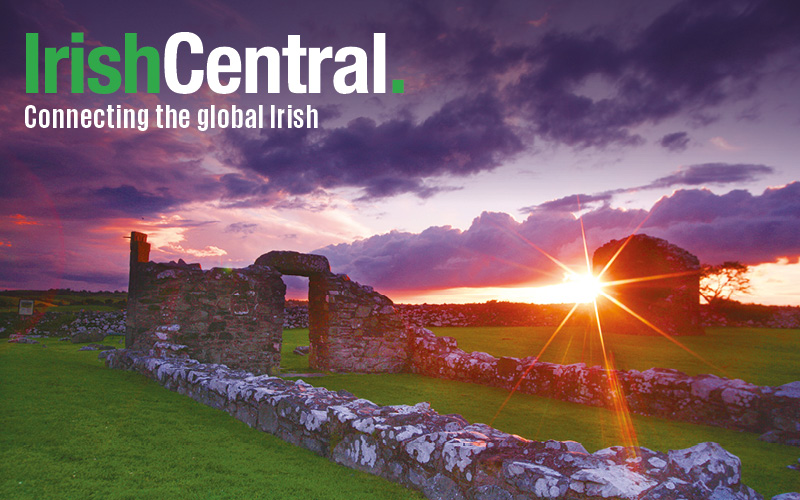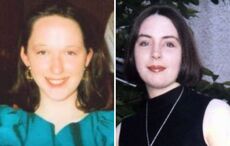Irish woman Mairead Molloy is the head of a global matchmaking business which helps the one percent find their love match. Her London-based business Berkeley International is an elite dating network said to be worth £2bn. Membership to the network starts at £10,000 and goes up to £50,000.
"We can all buy a car or buy a house or do everything you want to do. But if somebody fundamentally has everything but they just have no-one to have the fried egg sandwich with . . . Who wants to be lonely?" she says. "The bottom line is - this is the way I look at life - you only get one go on the roundabout. You could wake up tomorrow morning and conk out with some disease, so you may as well make the best of it."
Molloy told the Irish Independent: "Hong Kong, LA, New York are on the map at the moment," she says. "We're already established in Paris, Milan, Geneva, Belgium, Netherlands, Scandinavia, Germany, Spain. . . The thinking behind it is to have a high-end private members' club, only for single people - people who want to get into a serious relationship. And to have it in such a way that we are integrated worldwide through our member database."
Despite moving in exclusive social circles, the Wexford native remains down-to-earth.
"I love normality," said Molloy, who established the company 12 years ago. "I've got five sisters, I come from the south-east of Ireland. I don't live the life with the job I do. I like a loaf of bread and cup of Barry's tea."
Molloy was one of six girls in what she says "was a typical lovely Irish family, chicken dinner on the Sunday and all that."
"We were allowed to do whatever we wanted to do ourselves, we weren't forced to do anything, my parents just said do whatever you want to do. Each one has their own thing."
"You couldn't put me in a job and tell me what to do, because I'm too bossy," she says. "I like to be in control of what I'm doing. I couldn't sit in an office and work for someone - I'd be telling them what to do, the person who owns the company."
She set up her first business, a computer company, in Dublin soon after she graduated from DIT. Her business partner was her then-husband.
"It's still going," she says, "but somebody else owns it now." After selling her share, she started looking around for the next opportunity.
She next bought a hotel in Cannes which she said she “expanded it nearly doubly and then I sold it.”
She spent the next seven years in academia, studying psychology and eventually getting a Phd in Criminology.
While living in London, she says she "stumbled upon my now-current business-partner, and just came up with this idea and that was it. It was by pure accident. I fell into it. It wasn't something I was ever thinking I was going to do. But it's evolved from something that might have a romantic notion - people might have a romantic notion about it - to a business.”
Molloy, who is in her early forties, is now remarried to Luca, a Frenchman. She says she is intrigues by the way the French conduct relationships.
"They're absolutely not like the English or Irish when it comes to asking people out and going out on dates", she says.
"They're so dramatic. And then, you can fall in and out of love in a minute - it's like a thing that just happened, like a cloud." On the plus side, "You always know where you stand." And then there's "the way they talk about sex, 'On va faire l'amour, c'est pas possible, la la la.' My parents would die if they heard some of the things they say.”
Molloy divides her time between Cannes and London and often flies around the world to meet clients.
She thinks modern life is making people lonely.
"I think that social media has made us lonely," she says. "It started off by texting - people confirming and cancelling and turning up late - by text. So we lost our ability to communicate with each other. I hate it. Hate it!
"Now, it's even worse because we have become faceless friends. It's all virtual friends. People have their dinner over Skype and there's no need to leave your front door. Everyone is getting fatter, everyone's getting diabetes and it's a vicious circle because no-one will get up off their arse and go for a run, have a meal with a friend, keep a meeting, telephone to confirm and write a letter to your mother."
Berkeley dates are arranged the old-fashioned way, over the phone and there are no profiles or photographs online.
She says ten percent of her business comes from Irish clients. She says their is a greater need for sensitivity and discretion when dealing with the Irish market.
“I’m patriotic to the core," she says. "I would defend Ireland to the core. I only drink Barry's tea and I import the bread and all that - you've no idea."
However, "the thing about Irish people is, we're afraid that everybody will know who we are. Everybody knows somebody. So people get nervous. I'd love a Dublin office. I have a satellite office in Dublin - I fly over to see people. But most people who come over, they want a Dublin-London membership. That's kind of the general demand for Dublin."
She says her Irish members are among the most popular in her dating network, which she attributes to their sense of humor and refusal to take things too seriously.
"New York men want Irish women," she says. "The Dublin-New York liaison is really strong."
She says "everybody wants an Irish girl. English men want an Irish girl. I don't know about the French."
Molloy says it is interesting observing the cultural differences to finding love. She says Americans know what they want and won’t compromise.
"The Nordics and the Germans are very different, they look at it almost like a business - very pragmatic." While for Southern Europeans, "it's all about the love."




Comments